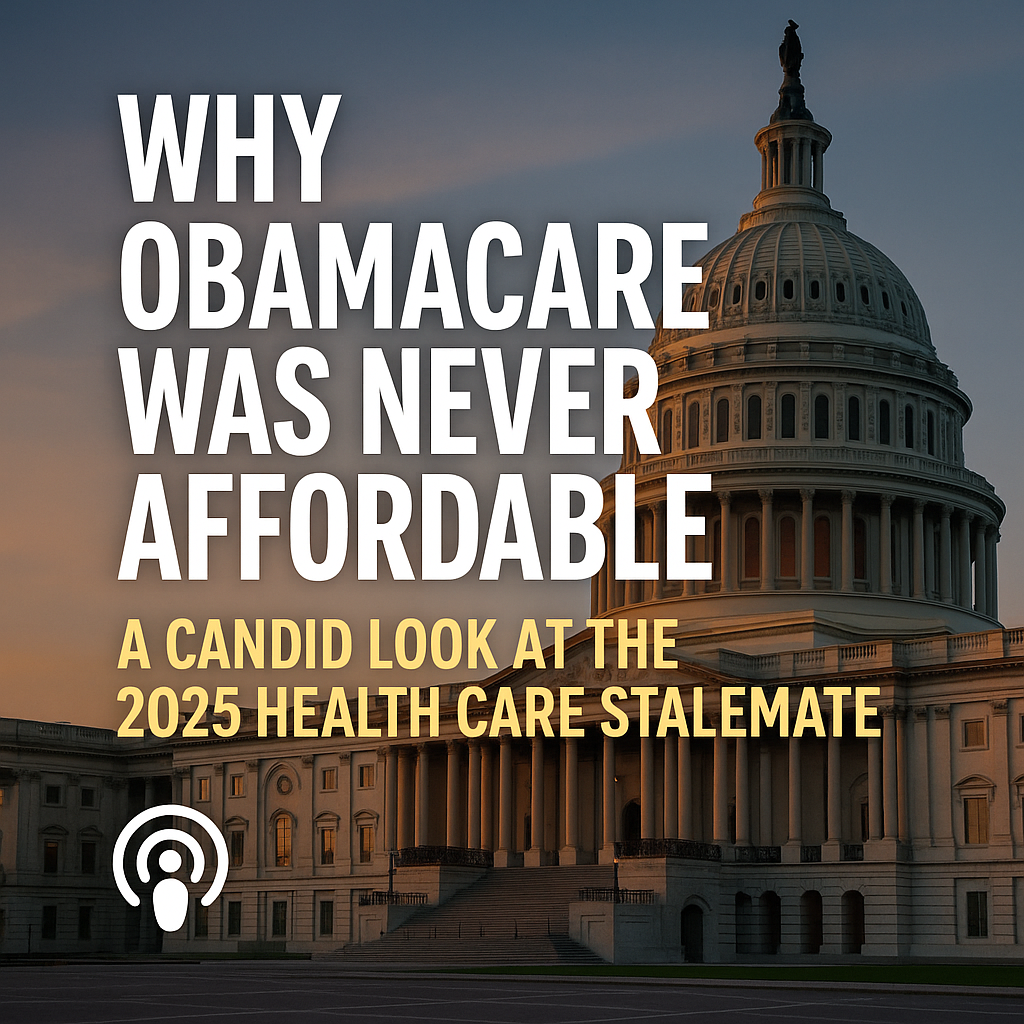A federal judge has ordered the U.S. Department of Health and Human Services (HHS) to stop sharing Medicaid data with Immigration and Customs Enforcement (ICE).
HHS began sharing Medicaid data in June 2025. On July 4, President Donald Trump signed the One Big Beautiful Bill Act, which stops federal funds intended for law-abiding Americans from being used to pay for nonemergency Medicaid benefits for immigrants illegally in the country.
In June, a coalition of 20 states filed a lawsuit to prevent HHS from sharing Medicaid data, arguing it is a violation of the Health Insurance Portability and Accountability Act (HIPAA).
The preliminary injunction, issued August 12 by U.S. District Judge Vince Chhabria of the Northern District of California, remains in effect until HHS and DHS complete a “reasoned decisionmaking (sic) process” that complies with the Administrative Procedures Act and 14 days after that.
Established Practice
In his decision, Chhabria said there is nothing unlawful about the data sharing, but it reverses policies of previous administrations.
“Given these policies, and given that the various players in the Medicaid system have relied on them, it was incumbent upon the agencies to carry out a reasoned decisionmaking (sic) process before changing them,” wrote Chhabria in his ruling. “The record in this case strongly suggests that no such process occurred.”
‘Unchecked Eligibility’
“The states are prioritizing the interests of noncitizens over American taxpayers who foot the bill for a bloated welfare system already strained by unchecked eligibility,” said Gary Alexander, director of the Medicaid and Health Safety Net Initiative at the Paragon Health Institute
Alexander served as Secretary of Human Services and Medicaid director for both Pennsylvania and Rhode Island and launched programs to eliminate waste, fraud, and abuse.
“During my tenures in Rhode Island and Pennsylvania, I wrote numerous letters to the Centers for Medicare and Medicaid Services and [the Department of Agriculture’s Food and Nutrition Services about these data-sharing issues,” said Alexander. “They all fell on deaf ears. Also, critics claim that it will deter immigrants from health care, but that’s a red herring: emergency care remains available, and the real issue is preventing fraud that drains billions from hardworking Americans and takes benefits away from the truly vulnerable.”
‘It’s Been a Joke’
Since 1996, illegal immigrants have been able to get emergency care under the Emergency Medical Treatment and Active Labor Act (EMTALA). Federal law prohibits hospitals from releasing patients without a treatment plan, so illegal immigrants without financial resources may stay longer than necessary.
Loopholes and lax enforcement have made keeping illegal immigrants off nonemergency care an uphill battle, says Alexander.
“It’s been a joke, allowing billions in improper payments and fraud that conservatives have railed against for decades,” said Alexander. “In essence, it’s unrealistic to think we can fully prevent this without stronger tools like data sharing.”
‘Applicants Game the System’
Verification failures and “bureaucratic ineptitude” are two obstacles to ensuring Medicaid is a program only for lawful Americans, says Alexander.
“States use the Federal Data Services Hub to check status, but self-attestation lets applicants game the system with provisional approvals that often go unverified,” said Alexander. “Mismatches from faulty databases or missing docs mean ineligible folks slip through, especially in mixed-status families where citizen kids qualify but parents shouldn’t.
“This isn’t rocket science; it’s basic accountability that big-government types ignore to inflate rolls,” said Alexander
‘Audits Reveal Sloppy Reporting’
Another problem is that blue states such as California and New York supposedly use their own money to cover illegal immigrant adults for nonemergency Medicaid while blurring the line between state and federal funds.
“Audits reveal sloppy reporting, with federal funds subsidizing nonemergency care for ineligibles,” said Alexander. “The COVID-era pause on verifications supercharged this mess, and even post-unwinding error rates are high because oversight is under-resourced and politicized.”
The federal government abdicated its responsibility to monitor spending, says Alexander.
“For too long, Washington has prioritized Obama-era expansions over enforcement, leading to GAO reports exposing massive waste,” said Alexander.
“The feds’ poor job of checking states stems from a lack of will—until now, with Trump’s team pushing audits and penalties,” said Alexander. “It’s about time we demand real accountability.”
‘Transparency Trumps Secrecy’
Enrollees forfeit their privacy by accepting the government money, says Alexander.
“When taxpayers are paying, transparency trumps secrecy,” said Alexander. “Enrollees consent to data sharing for eligibility checks, including with DHS. It’s right there in the fine print.”
Sharing data between government agencies to root out fraud is smart government, says Alexander.
“In a free-market world, we’d minimize government involvement altogether, letting private charity and insurance handle care without this mess,” said Alexander. “But as long as Medicaid exists, privacy isn’t absolute; it’s balanced against preventing abuse.
Buying Time for Lawbreakers?
Restricting the sharing of data is a tactic to protect illegal practices, says John Dunn, M.D., J.D., an emergency medicine physician in Texas and policy advisor to The Heartland Institute, which co-publishes Health Care News.
“Illegal aliens are not supposed to be eligible for welfare programs, and the judge wants them to be able to get their benefits,” said Dunn.
“Medicaid information going to ICE would help ICE track and identify illegals who are not easy to track because they are off the grid and their only contact with the government might be as Medicaid recipients,” said Dunn. “The info about where they receive their checks and benefits and under what name would allow ICE to identify them so they can be apprehended. The judge wants to impair the ability of ICE to find and identify illegals.”
AnneMarie Schieber ([email protected]) is the managing editor of Health Care News.




